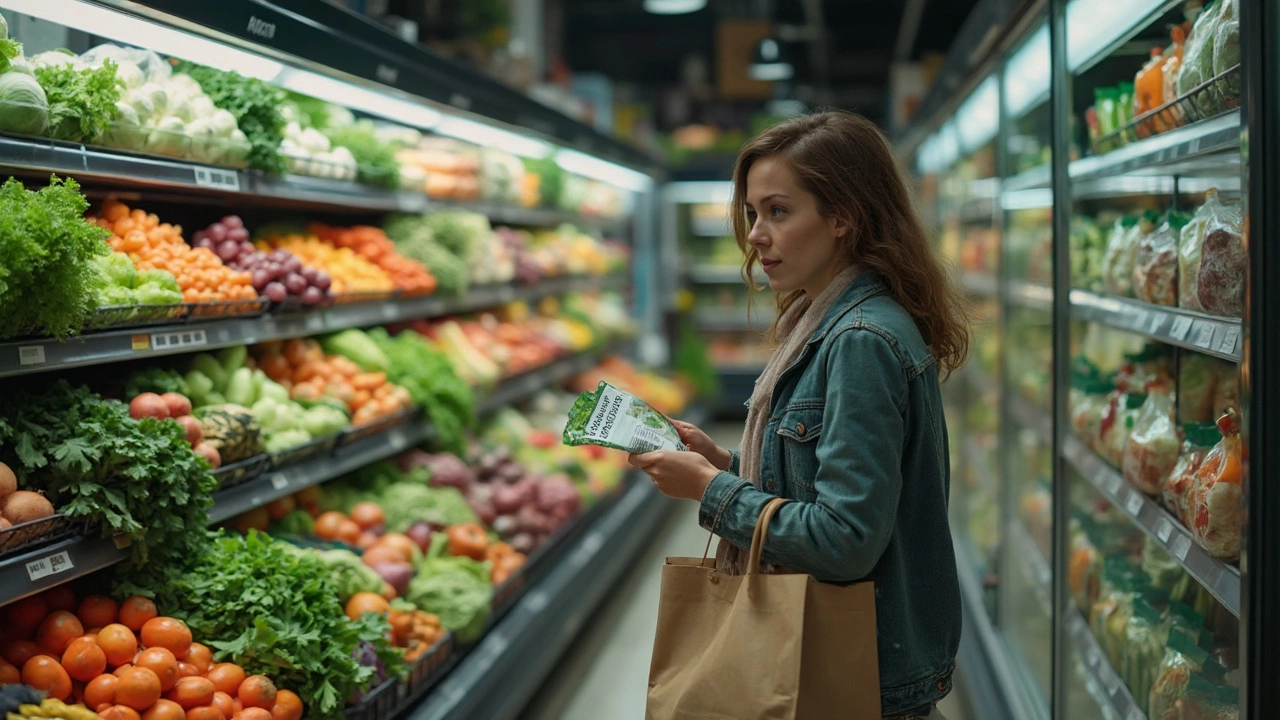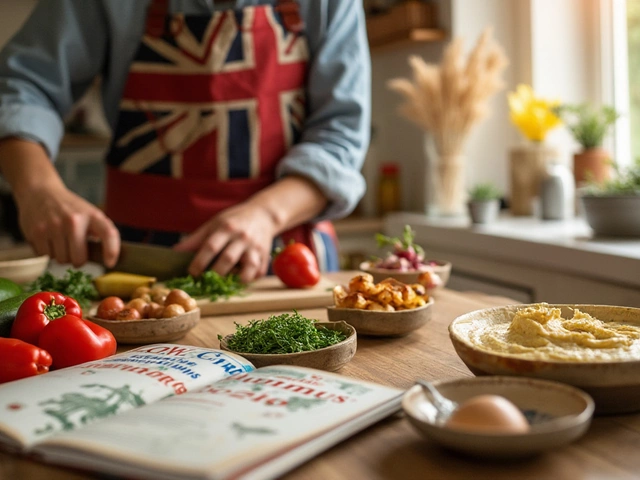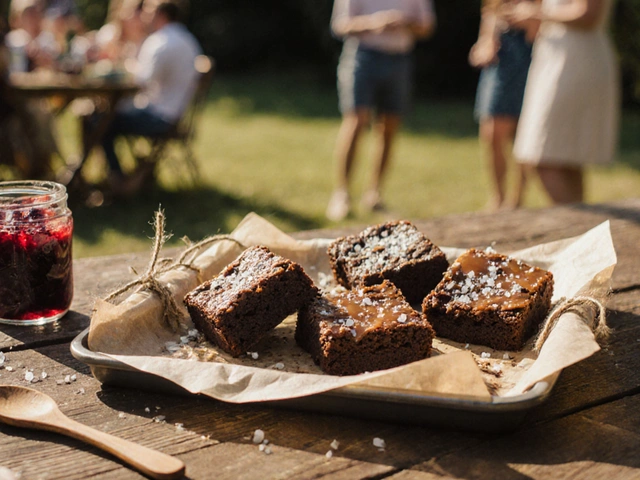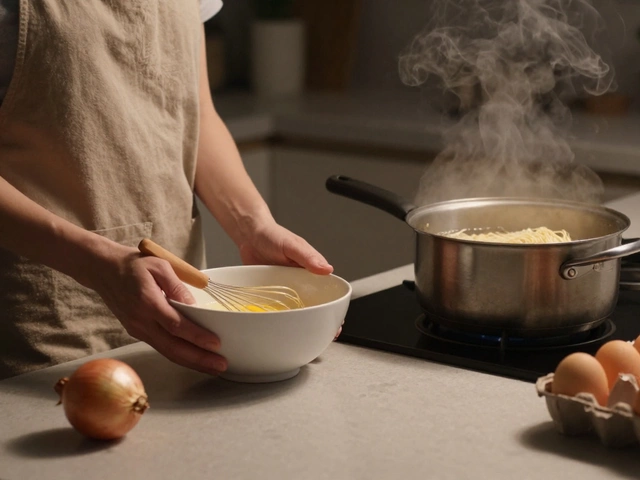
If you’ve spent time picking out veggies for your next vegan meal, you’d probably think they’re all safe. Guess what? Not every vegetable is as vegan as you’d hope. Surprised? You’re not alone. Some vegetables are grown using animal products or farming methods that clash with a true vegan lifestyle.
Take mushrooms grown on manure, or crops fertilized with blood meal and fish emulsion. These animal-based fertilizers end up on everyday foods like lettuce, tomatoes, and potatoes. Even worse, pesticides and wax coatings can contain animal ingredients, and nobody points that out in the store. So if you’re strict about vegan ethics, it’s not just the food label you need to watch—it’s the farms and fields, too.
- Why Some Vegetables Aren’t Fully Vegan
- Common Non-Vegan Practices in Vegetable Farming
- Specific Vegetables That Might Not Be Vegan
- Tips for Finding Truly Vegan Produce
Why Some Vegetables Aren’t Fully Vegan
It sounds odd, right? The words “vegetables” and “vegan” seem like they’d always line up. But, the way a lot of commercial farms work tells a different story. The main conflict comes from how veggies are grown, not the veggies themselves.
Here's the deal: most vegetables—including some you’d toss into your go-to vegan recipes without blinking—rely on farming practices tied to animals. A ton of common fertilizers aren’t just mined minerals. Many are made from animal leftovers like blood, bone, and fish parts. These ingredients help crops grow faster and keep costs low for big companies, but they don’t sit well with many vegans.
- Blood meal and bone meal – byproducts from slaughterhouses, used to boost soil nutrients for spinach, kale, and even onions.
- Fish emulsion – made from fish waste, often sprinkled on tomatoes, cucumbers, and leafy greens.
- Manure – you’ll find it on everything from mushrooms to strawberries, and yes, it’s definitely animal-based.
It doesn’t stop there. Pesticides and coatings used to protect vegetables sometimes hide animal byproducts, like beeswax or shellac. You probably won’t spot these on a sticker or package. And, just to add to the confusion, the word “organic” doesn’t always mean animal-free. Organic farms are allowed to use manure and other animal-based fertilizers, so the label isn’t a guarantee for strict vegans.
Check this out: A 2022 market survey found that over 80% of standard produce in big-chain grocery stores was grown using animal-based inputs. That means most of what you see at the store doesn’t fit the classic idea of vegan if you dig deep enough.
So, even if you’re filling your cart with fresh veggies, the journey they took to your kitchen probably wasn’t as plant-based as you’d like. If keeping your vegan values tight is a huge priority, it pays to ask how your vegetables are grown and handled right from the farm.
Common Non-Vegan Practices in Vegetable Farming
It’s kind of wild, but not every vegetable in your grocery cart is grown the same way. Some farms rely on animal-based stuff to boost the soil and defend crops. These old-school methods don’t line up with the vegan goal of avoiding animal products everywhere. If you’re serious about eating plant-based, here’s what’s going on behind the scenes.
Animal Fertilizers: Most veggies, even organic ones, are grown using fertilizers made from animal leftovers. Blood meal (dried animal blood), bone meal (ground-up bones), fish emulsion (liquefied fish parts), and manure are big-time favorites for improving dirt. They help crops grow fast, but the source is clearly not vegan.
Pesticides and Treatments: Some sprays and repellents have ingredients like casein (milk protein), beeswax, or shellac (a resin from insects). These are sometimes used to make fruits and vegetables shiny, or as a sticky base to hold other stuff in place. Nothing on the produce aisle screams 'animal product here,' which makes it tricky to know what you’re really eating.
"Many organic farmers still use animal manures and slaughterhouse byproducts for fertilizing produce. The demand for truly vegan-friendly agriculture is only now starting to catch on," — Dr. Emma Sinclair, Sustainable Agriculture Researcher, 2023.
Here’s a quick breakdown of common animal-based products used in mainstream farms:
- Blood meal: High in nitrogen, made from slaughterhouse blood
- Bone meal: From animal bones, adds phosphorus
- Fish emulsion: Made from ground fish, boosts plant growth
- Manure: Animal poo, works for nutrition and soil texture
- Shellac/wax: Coating for shiny appearance and shelf life
Ready for a shocker? According to a 2022 study from the European Plant Nutrition Institute, over 85% of commercial non-vegan produce uses at least one of these animal-sourced inputs at some stage of farming:
| Farming Input | Common Use | Animal-Free? |
|---|---|---|
| Blood Meal | Fertilizer | No |
| Bone Meal | Soil Booster | No |
| Fish Emulsion | Growth Stimulant | No |
| Manure | Multi-purpose | No |
| Vegan Compost | Fertilizer | Yes |
So if you want your vegan recipes to be 100% cruelty-free, it’s not just about skipping animal meat or dairy. You’ve got to watch out for what’s used in the field, too.

Specific Vegetables That Might Not Be Vegan
You probably expect every vegetable you grab at the store to be safely vegan. But here’s where things get tricky. The way certain crops are farmed can make even the most innocent-looking veggie a problem for those sticking to strict vegan standards.
Let’s break down some of the usual suspects:
- Mushrooms: Most commercial mushrooms (like white button or portobello) are grown on beds that use manure. Some even rely on bone meal or feather meal to boost growth. So, if animal-based fertilizer is a dealbreaker for you, mushrooms might not cut it.
- Avocados: A lot of avocados grown in California and Mexico rely on bee pollination, but here’s the catch—it’s almost always done by bringing in rented bees, which is called “migratory beekeeping.” This practice isn’t considered vegan-friendly by some because it disrupts the natural lifecycle of bees.
- Broccoli, almonds, and butternut squash: These crops often use the same kind of managed pollination as avocados. It’s not rare for big farms to bring in truckloads of bees just to keep up production.
- Tomatoes and potatoes: Most of these are fertilized using animal products like fish emulsion or animal-based compost. Unless you’re buying organic and asking tough questions, you’re probably eating veggies grown with animal help.
If you’re looking for hard facts, the Vegan Society says:
"For some vegans, indirect harm through using animal-derived fertilizers still matters. There’s no such thing as a perfectly vegan food system."
It’s wild to think that so many fresh, colorful items in the produce aisle aren’t 100% plant-based by strict standards. Even some organically grown options aren’t guaranteed since organic doesn’t always mean animal-free fertilization. Here’s a simple overview of just how common animal byproducts are in farming:
| Vegetable | Common Non-Vegan Practice |
|---|---|
| Mushrooms | Grown on manure/bone meal |
| Avocado | Migratory bee pollination |
| Broccoli | Migratory bee pollination |
| Potatoes | Animal-based fertilizers |
| Tomatoes | Fish emulsion, animal compost |
If you want your vegan recipes to be as legit as possible, finding out how your veggies are farmed is just as important as skipping animal products on your plate. It’s not about being perfect, but knowing what’s behind your non-vegan produce gives you real peace of mind—or at the very least, a good starting point for tough food choices.
Tips for Finding Truly Vegan Produce
Hunting down vegan veggies isn’t as easy as just hitting the produce aisle and grabbing whatever looks freshest. If you’re serious about keeping animal byproducts out of your kitchen, you’ll want to get a little more strategic. Here’s how to sidestep those sneaky non-vegan practices in the world of vegetables and vegan recipes.
- Buy Organic, but Read Beyond the Label: Organic farms ban synthetic chemicals, but some still use animal-based fertilizers like manure or bone meal. Look for the "veganic" label; it means no animal products were used, not even in the soil.
- Get Personal at Farmers' Markets: Chat with your local growers. Just ask, “What do you use to fertilize your crops?” Most small farmers are happy to talk about their methods. This direct approach is the best way to get honest answers.
- Join a CSA with Vegan Practices: Some Community Supported Agriculture (CSA) programs now offer boxes from farms using strictly plant-based methods. These are pretty rare but growing as more people demand vegan options.
- Watch Out for Waxes and Coatings: Apples, cucumbers, and even citrus are often coated with wax. Plant-based waxes are out there, but many stores don’t label which type is used. Ask in-store or check their sourcing policies online.
- Start Growing Your Own: This is the only way to know for sure what went into your food. Stick to plant-based compost and skip animal manure. Even a couple of pots on a balcony will give you total control over your vegan produce.
Here’s a quick look at how some farming certifications compare when it comes to animal-free practices:
| Certification | Animal-Free Fertilizer? | Common in Stores? |
|---|---|---|
| Conventional | No | Yes |
| Organic | Sometimes | Yes |
| Vegan Organic (Veganic) | Yes | No (Niche) |
One more tip: websites like Vegan Organic Network share directories of "veganic" farms by region. It’s a solid resource for anyone trying to stick to truly vegan veggies. Once you get the hang of these steps, your produce game gets way more trustworthy and you’ll feel confident about what’s actually in your bowl.





